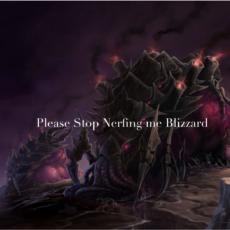
Just kidding. this IS a playlist talking about divisive questions, but only divisive environmental ones.
Feel free to continue. this was a prank.
Ha?

I felt this playlist was becoming quite serious and possibly a bit too text-heavy and stale, so here's a picture of a glorious duck to lighten the mood.

From those who see our planet as doomed to become unlivable to those who view climate change as a myth, people globally are polarized in both extremes, and in others too. While there is proof that the world won't become unlivable, and that climate change is indeed a thing, many choose simply to ignore facts in favor of ideology.
The path towards saving the environment and our society lies not in siding with one of these extremes, but by listening to science and molding our opinions around it, as it is one of the only objective forces in this divided world.
Moderation is more powerful than extremism. Have a balanced approach to things, and never disregard an argument because it is different than what you think - if you do, then you're part of the problem.

Most assume that we must preserve native species from their invasive counterparts, I ask, why? Is it because not doing so would endanger biodiversity? Because we brought these species here, is it somehow our moral duty to protect these creatures that cannot help themselves?
We shall find out.

An introduction to what we (I) will be talking (writing) about today (whenever you read this).

Simple Answer: No.
Long Answer: Click on the link below.

As the world around us changes for either better or worse, activist groups and scientists alike compete for the attention of world governments. But what is the best way to grab the attention of these entities?
This page seeks to answer this question.

Two of these currently exist, and one of these is poised to dominate the energy of tomorrow. The real question is whether or not it will come in time to save our environment.
This page of text goes into a moderately deep explanation of some of the pros and cons of each power generation system and explains what our best course of action might be for future power generation.

Verdict: People really demonize the beef industry, so while it is bad, the damage it does is still preventable and some of the claims are genuinely false.
So, in the end, the answer would be "Partially".

This is a truly, criminally under-discussed idea. The idea of destroying a number of animals to reduce emissions in the short term and provide us with time to switch to green energy is an interesting one, and it is one that I will discuss in depth here.
Be advised that I do not condone rampant animal murder as of now - it isn't' necessary.
Verdict: It could work, and the unforeseen consequences may not be as bad as some say, but it simply isn't necessary now - the environment, while damaged, isn't yet at the stage where we need to reduce emissions so sharply that we'd be able to consider destroying animal populations, be they domesticated or otherwise.

Well, that’s it. You’ve sat down and read all of my work, or maybe you just skimmed through the entire thing to get an idea of what I wrote. Either way, thank you for your attention. I hope these entries have provided some much-needed information on some controversial, often misunderstood environmental topics, as well as asking a few downright insane (and yet, still plausible) questions.
In short, to sum up, our current environmental situation, I would put it like this:
Better than people say it is, but still bad.
The plastic problem, I fear, gets far too much attention and diverts efforts away from climate change into saving animals, which matters little in teh short term or even long term. Either way, this playlist does not exist to share my opinions, only to debate questions. I hope it has served it’s purpose, and I hope it has inspired you to question everything that you’re told - opinions are present in everything. Even a logical, rational person such as myself cannot help but fall to the vice of conviction occasionally.
Anyway,
Have a pleasant day, and rest easy - the world won’t end tomorrow.

I don't even need to go into a full debate to explain that "No, no we should not".
While this is an intriguing question, it is easily answered: The implementation would be endlessly difficult without nuclear weapons, and if we use those we destroy nature in the process. Not only that, but it would also result in the deaths of billions of people, and we tend to avoid doing things that result in that for good reason.

This opens up a whole new can of aquatic worms. Prepare thyself.
End verdict: After much simulated debate the affirmative side is argued into a corner. The negative side wins a hard-fought victory, though if some other points are suggested this could change.

The obscene character limit for these segments means that I will be largely explaining myself in the actual text document, however, I can provide a recap here. So I will:
Verdict: Plastic is harmful to some marine species, but only kills a small number of them each year,
Not only that but they have not been proven to damage either humans or plants.















